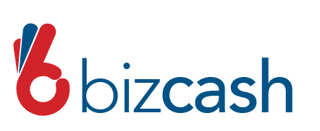
On Day Zero, Cape Town’s taps will be turned off and Mother City residents will begin queuing for their H20 at 200 collection sites across the city. It’s a nightmare scenario, something you see happening in a dystopic disaster movie set in the year 2148.
The truth is, businesses everywhere are engaged in a constant battle to keep their own Day Zero at bay. For when the taps run dry and liquidity dissolves, it truly does sound the death knoll for a business. No matter what your long-term prospects are, how innovative your product or service, or how revolutionary your business model, not having ready access to cash – not being able to open the tap when you need to – will see all your best-laid plans come to naught.
Fortunately, even for the most cash-challenged business, there are a number of relatively simple ways to keep the taps flowing. Here are eight of them:
1. Extend Credit
Though by no means ideal, it is often in your best business interests to accept credit card payments – particularly when the alternative is having your customers pay late (or not at all).
Even taking into account the fee’s credit card companies charge for their service, it is worth maintaining positive cash flow by slightly reducing margins.
Similarly, when paying suppliers, use a company credit card to pay instalments rather than making a large lump-sum payment up-front. Again, incurring interest payments might be worth the cost if it results in a healthy cash flow position.
2. Compress your cash flow cycle
Your cash flow cycle is the amount of time it takes for you to buy raw materials or other inputs, create your product, make sales, and receive payment for your goods or services.
The shorter and more efficient the cash flow cycle, the more liquid your working capital position – i.e. the more money you have on hand for ongoing expenses.
One way of improving your cash flow position is to speed up your business systems or processes so you can generate more cash flow cycles per year.
Read our blog on the importance of maintaining steady cash flow: Better understand cash flow to ensure your business's financial health
3. Conduct cash flow projections
Do cash flow projections every month to ensure that you are reading the trends before they hurt you. Even better, set up a rolling weekly cash flow forecast, looking 8 to 12 weeks ahead.
When evaluating your upcoming projects or deliveries to customers, pay particular attention to the payment terms and frequency. Balloon payments are not your friend. For example, a job that pays R600,000 at the end of the year is not as good for your cash flow as a R540,000 job that pays R45,000 every month for 12 months.
4. Invest in quality budgeting and accounting software
There are many software tools out there that can help you to manage your cash flow better. Invest in a quality accounting software package as this will allow you to determine your breakeven point and forecast your cash flow for planning purposes.
A quality software product will also enable you to report on key business metrics such as accounts receivables ageing, operating margins and inventory turnover. If you can afford it, rather use one integrated piece of software that covers all of these functions
5. Keep your financial records up to date
Ensure your financial records are kept up to date, so you can evaluate your cash flow position whenever you need to. If you are not comfortable with numbers, rather hire an accountant to help you with your accounting processes.
Most business owners are diligent in maintaining a profit and loss statement and a balance sheet, but pay scant attention to producing a cash flow statement. This is a careless omission. Not only does the cash flow statement allow you to measure the health of your working capital, it can also serve as an early-warning system for your overall account.
6. Stay ahead of inflation
South Africa’s current inflation rate is at 4.6% (November 2017), which means R1,000 in your bank account today will be worth around R950 in a year’s time.
To avoid spare cash from being eaten away by inflation invest it in an interest-bearing account that you can access speedily in an emergency. This can be a money market account, or an index tracker investment account. Ideally this should not be a risky investment or a big bet, but a safe, stable account that keeps you ahead of inflation. Think of this as your slush fund to help you through the lean times.
7. Set aside money for the taxman
The South African Revenue Service (SARS) imposes an onerous burden on small businesses by requiring them to pay VAT on an invoice basis. This means that companies pay tax on money that may not have been received yet.
Business owners should be mindful of getting caught owing the taxman a large payment and draining their cash reserves. Luckily businesses earning less than R1 million are exempt from paying VAT, but as soon as you cross this threshold you need to set aside a lump sum to settle your tax obligations without breaking the bank.
8. Get help where you need it
Sometimes the best-laid plans are not enough to avoid a cash flow crisis. For instance, a key customer makes a large order and unexpectedly falls behind on their payment obligations. For temporary working capital problems, you may wish to consider invoice financing solutions offered by formally accredited service providers. These services can unblock invoicing bottlenecks and help your business to get back on track quickly.
To find out what you need to qualify for alternative financing solutions, read our blog:Going Alternative: Qualifying criteria for alternative business financing
Something to keep in mind
Being up-front with your creditors about the problems you are facing can also help you to get through a tricky situation. Picking up the phone to your suppliers and explaining your problem could enable you to renegotiate terms or find alternative solutions to a seemingly intractable situation. However, this will largely depend on the nature of your business relationships, and should not be your go-to strategy.
Avoiding a crisis before it happens is preferable to attempting to resolve a crisis when you are in the thick of it.





 Proudly financed by Reichmans Capital -
Proudly financed by Reichmans Capital -